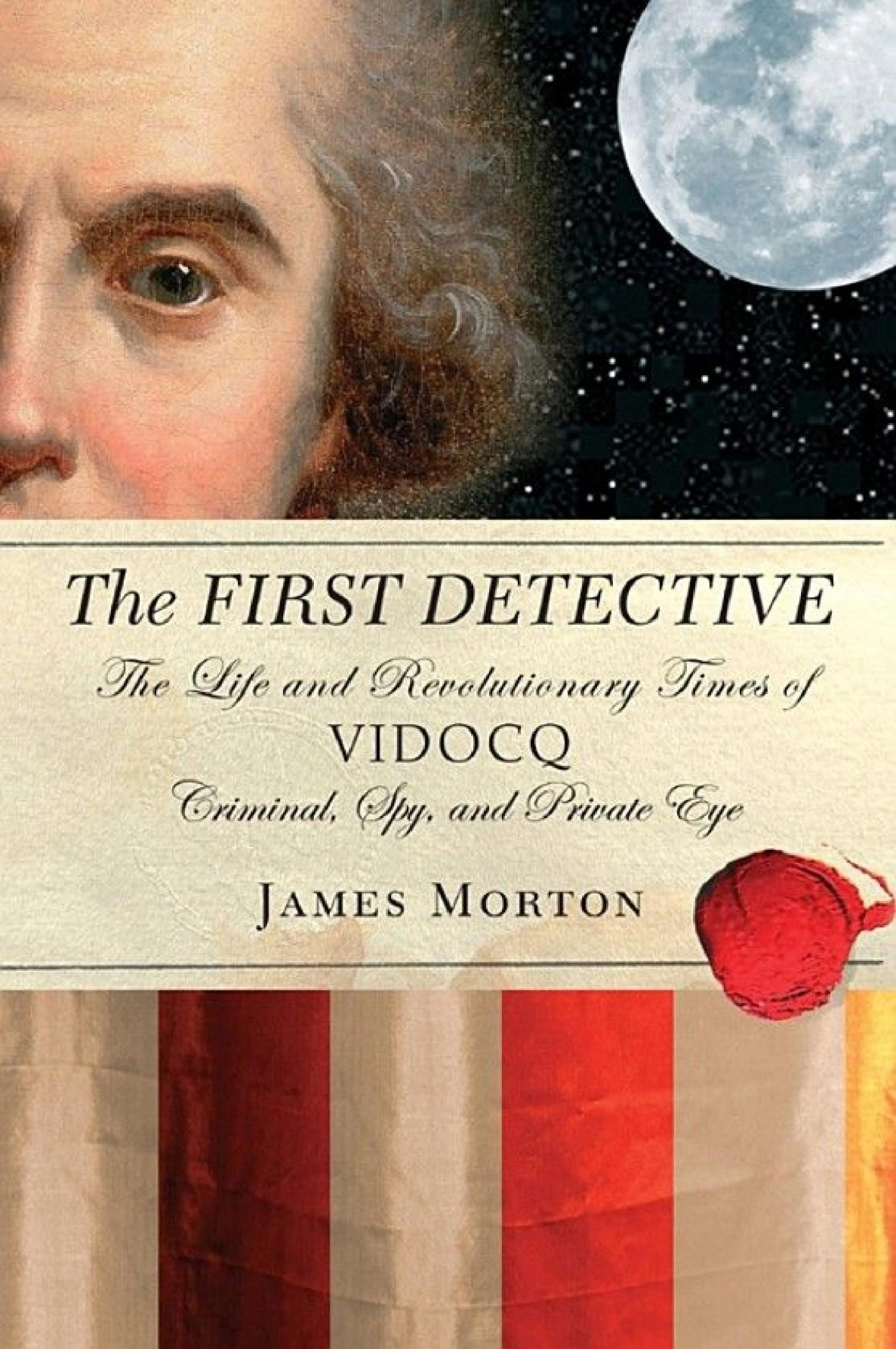
The First Detective
The Life and Revolutionary Times of Vidocq: Criminal, Spy, and Private Eye
کتاب های مرتبط
- اطلاعات
- نقد و بررسی
- دیدگاه کاربران
نقد و بررسی

July 18, 2011
Eugène-François Vidocq (1775-1857) may be the most fascinating guy you've never heard of. A career criminal turned informant turned police officer turned private detective turned authors' muse (with stints in between as spy, memoirist, and semi-professional litigant), Vidocq introduced methods of sleuthing still used today. He was the first to use undercover agents, keep records of arrests, take foot and fingerprints, as well as inventing both indelible ink and unalterable paper. A long-time subject of French TV and film, his detective agency predates the more famous one founded by Pinkerton, and he inspired not only Balzac and Hugo (he was the model for both the detective and the criminal in Les Miserables), but arguably Edgar Allan Poe's Auguste Dupin. Later, he turns up in Michel Foucault's Discipline and Punish as an example of the melding of police authority with criminality. If only Morton's biography, originally published by Random House in 2006, were as interesting as its subject. Sadly, Morton is a poor judge of when to include illuminating details, and his writing is workman-like. Vidocq deserves better: his life is a Johnny Depp costume drama waiting to happen. Aspiring screenwriters should skip this biography and go straight to Vidocq's memoirs.

May 1, 2011
The picaresque adventures of the legendary French thief, cuckold, turncoat and spy.
Former lawyer turned proficient crime writer Morton (Gangland Soho, 2008, etc.) finds an irresistible subject in Eugene-François Vidocq (1775–1857), who discovered his lucrative calling as a prison informer and founder of the first detective agency in Paris in the 1830s. His criminal exploits and successes inspired his own fiction, as well as characters like Balzac's Vautrin, Victor Hugo's Jean Valjean and Javert and Edgar Allan Poe's detective Dupin. Morton tries to sift the fact from fanciful fiction, and while amused by Vidocq's own tales, relies heavily on accounts by previous biographers. Born to a baker and a mother who would stand by him his whole life despite his delinquency, Vidocq would soon be burgling his own parents, joining a circus, falling in and out of the army, provoking duels, conducting romances with ladies who routinely shook him down and duped him, thieving, forging and then being thrown in prison. "With a show of bravado worthy of the Scarlet Pimpernel or Fan-Fan La Tulipe," writes Morton mischievously, Vidocq was frequently in disguise, "ducking, diving and dining all over the city." Escape from prison was his forte, before being transported to the formidable "prison-cum-lunatic-asylum-cum-hospital-cum-poorhouse" at Bicetre. Becoming an informer saved his life, and by 1811, he had arrived as an effective mouchard at the Brigade de Surete. Vidocq's reputation in cleaning up Paris spread his fame to London and elsewhere.
Wry and rollicking, these escapades offer old-fashioned literary fun while somewhat taxing reader credulity and patience.
(COPYRIGHT (2011) KIRKUS REVIEWS/NIELSEN BUSINESS MEDIA, INC. ALL RIGHTS RESERVED.)

June 1, 2011
By the time he was 20, Eugene-Franois Vidocq was well known to political and military officials in late-eighteenth-century France. He had carved out a reputation as a daring but apparently incorrigible thief, brawler, and military deserter. Yet this undeniably brilliant and attractive character would reform and use his talents to become a scientific crime fighter, private detective, and even a spy while navigating the treacherous milieu of revolutionary and postrevolutionary France and Europe. Attorney turned author Morton has written a sometimes fascinating, sometimes confusing account of Vidocq's varied career, originally published in Britain in 2005. When his narrative stays on point, we learn how Vidocq utilized his own criminal background and other ex-criminals to methodically compile data on lawbreakers and pioneer other innovative techniques to fight crime. In describing his later espionage efforts, Morton jumps between unverifiable speculation and sensationalism. Still, for general readers unfamiliar with Vidocq, this will be an informative and generally enjoyable read.(Reprinted with permission of Booklist, copyright 2011, American Library Association.)

























دیدگاه کاربران